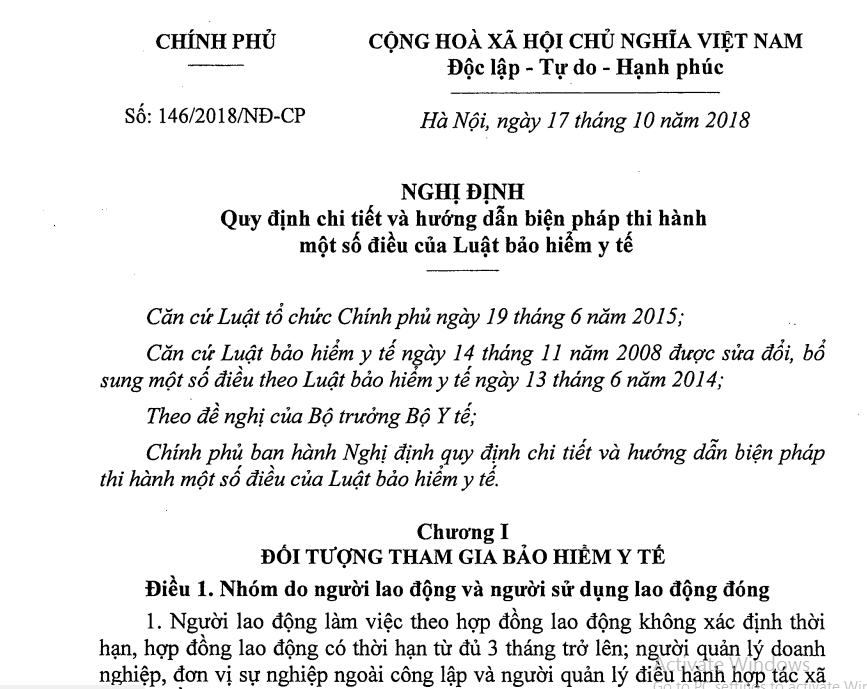In the current context of Vietnam, where the awareness and understanding of individuals in society are increasingly being enhanced, non-essential needs such as entering into an insurance contract are no longer considered "a luxury need." Consequently, insurance products are flourishing in the market, becoming increasingly diverse in both quality and quantity. This requires the legal framework governing this specific commercial activity to be perfected in order to create a safe and effective playing field. In this playing field, merchants are ensured the freedom to conduct business, and the objective of seeking profit is also ensured, while policyholders have their legitimate rights and interests protected when choosing to purchase insurance as a financial precaution against potential risks in life.
To ensure the requirements as mentioned above, the current insurance business contract law must consider some specific provisions, particularly focusing on inherent regulations that characterize this special commercial activity. These provisions differentiate the content of insurance business law from the laws governing other "traditional" commercial activities. According to the principle of equality – freedom – agreement, recognized in the Civil Code from 1995 to date, the contents of the contract are entirely determined by the parties and depend on their will. The contract content provisions in the Civil Code only offer recommendations to the contracting parties to limit disputes and disagreements during the contract execution later.
.jpg)
Illustration (source: internet)
Meanwhile, the Insurance Business Law of 2000 (amended and supplemented in 2010) stipulates some required contents in the insurance contract such as: “Name and address of the insurer, name and address of the policyholder; the insured object, the sum insured, the conditions, the scope of insurance, the insurance terms, the disclaimer clauses, the insurance term, the insurance premium...” These are mandatory clauses that the parties must record in the insurance business contract. Given the special nature of the insurance business, which involves a unique contract object — “the promise to pay insurance benefits upon the occurrence of certain risks” — of the insurer to the policyholder, the contents outlined in the Insurance Business Law are indeed necessary to be agreed upon in the insurance business contract. This helps the policyholder clearly and comprehensively understand this special commercial activity, thereby accurately determining their rights and obligations in the insurance business relationship. However, specific provisions regarding disclaimer clauses in the Insurance Business Law of 2000, amended and supplemented in 2010 currently remain unreasonable and do not ensure the principle of balancing the interests of the parties involved in the insurance business relationship.
Specifically, according to the Insurance Business Law, the disclaimer clause is understood as “cases where the insurer does not have to pay or compensate when an insured event occurs.” This means that when such cases arise, even though an insured event occurs, the policyholder will not receive any payment from the insurer. This provision ensures the essence of the insurance business is maintained based on the principle of the majority compensating the minority. This activity can only proceed if the number of policyholders far exceeds the number of people encountering certain risks requiring the insurer to fulfill their obligations. Therefore, insurers will not face the risk of insolvency when catastrophic events such as earthquakes, tsunamis, or wars occur, as these events cause widespread and massive damage to human life, health, and property.
Consequently, insurers may lack the financial capacity to cover the insurance benefits and compensation for the losses sustained by policyholders. They could even face insolvency or bankruptcy. Therefore, it can be affirmed that the provision on disclaimer clauses must be a mandatory component of the insurance business contract, albeit with some existing challenges and limitations:
First, the current Insurance Business Law only mentions the concept, principle, and exceptional cases of the disclaimer clause without setting limits for insurers when defining their cases of non-liability. This could lead to the insurer using the “disclaimer clause” as a tool to escape their obligation to pay insurance money when an insured event occurs. Especially since most insurance business contracts are adhesion contracts (type of contract with terms determined based on the will of one party, leaving the other party no opportunity for negotiation but to accept or reject it), the policyholder cannot control the “disclaimer” cases the insurer includes in the contract. Thus, insurers can potentially “abuse” the disclaimer provision to refuse fulfilling insurance obligations towards policyholders when risks occur. Consequently, the legitimate rights and interests of policyholders in the insurance contract will not be assured in practice.
Second, the Insurance Business Law of 2000 (amended and supplemented in 2010) does not specify legal consequences for insurance business contracts lacking a disclaimer clause. This causes confusion for the contracting parties and poses challenges for dispute resolution authorities in determining the rights and obligations of the parties in the absence of an agreed disclaimer clause when disputes arise. Practically, two viewpoints exist: One view points to the possibility of declaring the contract void if it lacks mandatory clauses. Another view suggests the contract is considered not formed, as mandatory clauses are crucial to its existence within the insurance business relationship.
Third, in relation to the Consumer Protection Law of 2010, the mandatory existence of disclaimer clauses in insurance business contracts, as per the Insurance Business Law of 2000 (amended and supplemented in 2010), will not be effective to prevent consumers' legitimate rights and interests from being infringed by exclusionary terms pre-drafted in the contract. This means that notwithstanding the provisions of the Consumer Protection Law, the insurer must still pay the insurance benefits when an insured event occurs, even if the insurer is contractually exempt from liability. This poses a conflict between the Consumer Protection Law and the Insurance Business Law concerning the same exclusion clauses but in entirely opposite directions: The Insurance Business Law views disclaimer clauses as a condition for the validity of the business contract, while the Consumer Protection Law negates these clauses by not acknowledging their effectiveness, leading to different legal outcomes affecting the rights and obligations of contract parties. Specifically, upon the occurrence of an insured event subject to exclusion: (i) Applying the Insurance Business Law leaves the insurer not liable for payment, denying the policyholder any payouts; (ii) Applying the Consumer Protection Law mandates the insurer to fulfill the insurance obligations, entitling the policyholder to the agreed payout. This situation means each party could apply different legal provisions to protect their interests, both justly and legally. Thus, applying the principle of sector-specific laws (between general and specialized laws) may solve the issue. The question arises which of the Consumer Protection Law or the Insurance Business Law plays the general or specific role in this context. The author suggests the Consumer Protection Law plays the general role, covering customer protection in their consumption actions with suppliers, whereas the Insurance Business Law, being specialized, governs specific insurance business relations, ensuring the essence of this special commercial activity and balancing interests of both insurer and policyholder.
To comprehensively and thoroughly address the aforementioned limitations and issues, the author has several recommendations:
Firstly, the Insurance Business Law should include provisions specifying the limits of exclusion circumstances that insurers can include in contracts. This helps the policyholder control the lawfulness of exclusion cases insurers include in contracts and prevents insurers from abusing loose legal regulations to evade payment obligations. These limits should be designed as follows: “Exclusion circumstances are only agreed upon to ensure the insurer's solvency.” This preserves the essence of insurance business contracts and ensures insurers' freedom to operate. Effective control of exclusion circumstances included by insurers can be managed via the Ministry of Finance’s insurance product registration process, acting as a “filter” to remove any harmful provisions against the policyholder’s legal interests.
Secondly, the Insurance Business Law should specify legal consequences for agreements lacking a disclaimer clause in one of two ways: One way is declaring the contract void under the Insurance Business Law (like other exceptional invalid cases despite meeting validity conditions). Another way is treating the contract as not formed if missing this clause, thus no rights and obligations arise. Additionally, both situations lead to restoring original assets and returning exchanged items between parties.
Thirdly, resolving conflicts between the Insurance Business Law and the Consumer Protection Law over disclaimer clauses in one of these ways: Firstly, add exceptions within the Consumer Protection Law for exclusion terms of business entities, treating insurer disclaimers ensuring solvency as exceptions. Secondly, include a validity principle in the Insurance Business Law—when conflicts between it as a sector-specific law and the Consumer Protection Law arise, the latter is applied to the extent it maximally protects consumer rights without violating the insurer's legitimate interests.
The above recommendations aim to address existing limitations in the current Insurance Business Law regarding disclaimer clauses in insurance business contracts. These suggestions respect contractual agreements while ensuring balance among parties and state management needs over this specialized commercial activity.
Source: MSc. Do Phuong Thao - Hanoi University of Commerce
 Article table of contents
Article table of contents
.jpg)




.Medium.png)
.Medium.png)
.Medium.png)
.Medium.png)
